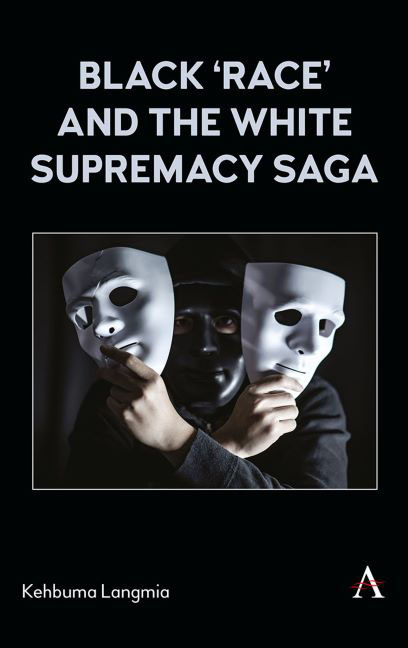Book contents
- Frontmatter
- Dedication
- Contents
- Foreword
- Acknowledgments
- 1 The Shifting Sands on the Feet of Black People
- 2 Shadow of Colonialism and Slavery on Black People
- 3 Black People and COVID-19
- 4 Africans and Mass Immigration
- 5 Blacks and the Politics of Demo-“Crazy” and Development
- 6 Victimhood and the Identity Crisis: Blacks and the Epistemology of Freedom
- 7 Black Status and Physical Threats
- 8 The Epistemology of Black Poverty, Resistance, and Resilience
- 9 The Politics of Europe/China Dependency on Africa
- 10 False Western Epistemological Dominance
- References
- Index
Foreword
Published online by Cambridge University Press: 13 April 2024
- Frontmatter
- Dedication
- Contents
- Foreword
- Acknowledgments
- 1 The Shifting Sands on the Feet of Black People
- 2 Shadow of Colonialism and Slavery on Black People
- 3 Black People and COVID-19
- 4 Africans and Mass Immigration
- 5 Blacks and the Politics of Demo-“Crazy” and Development
- 6 Victimhood and the Identity Crisis: Blacks and the Epistemology of Freedom
- 7 Black Status and Physical Threats
- 8 The Epistemology of Black Poverty, Resistance, and Resilience
- 9 The Politics of Europe/China Dependency on Africa
- 10 False Western Epistemological Dominance
- References
- Index
Summary
Kehbuma Langmia has given us a penetrating look into his thinking about the complex issue of race in modern Western society. This is not an easy subject, and every corner has its own threats of derailment from the highway of truth about human nature. I have read his text and arrived at several conclusions that might assist the reader's reflection. As Nah Dove and I pointed out in our book, Being Human Being: Transforming the Race Discourse, the history of race, as Langmia notes, is long and enmeshed in the political and cultural era in which it started and evolved. Starting with the classification system introduced by the Vedas as the varnas of Indian and being augmented by the monotheistic exclusionary religions of Judaism, Islam, and Christianity, the idea of those who were inside and those who were outside took hold of the human population and has wreaked havoc for centuries. How one detaches from the wiry fingers of an all-encompassing monster such as race, given the fact that the evangelists of the ideology of white racial domination have not slept for a long time, is the ultimate quest of the questions raised by Kehbuma Langmia.
While I am struck by Langmia's candor, his directness, and his enthusiasm to present his ideas, one sees evidence that the work could be more nuanced, but then we would have missed the point of the author in creating and developing the work along lines that would shake the reader. To that end, I will be the first to admit that I am indeed awakened to the fact that we have rarely thought in terms that are introduced in this book. It is full of verve, energy, and insight.
Clearly, Langmia's book seeks to problematize the questions of race, domination, patriarchy, and racial rankings. At the very dawn of classification in the varna system of India when Hindu religion enshrined distinctions between people, largely based on complexion, humans who assumed a sense of superiority over others had to make castes that locked those of “lesser” value in their roles in perpetuity. This was as early as the establishment of the Vedas and may have been around 2200 BCE. Thus, Langmia's work is exploratory in the field of conceptual reorientation.
- Type
- Chapter
- Information
- Black 'Race' and the White Supremacy Saga , pp. ix - xPublisher: Anthem PressPrint publication year: 2024

